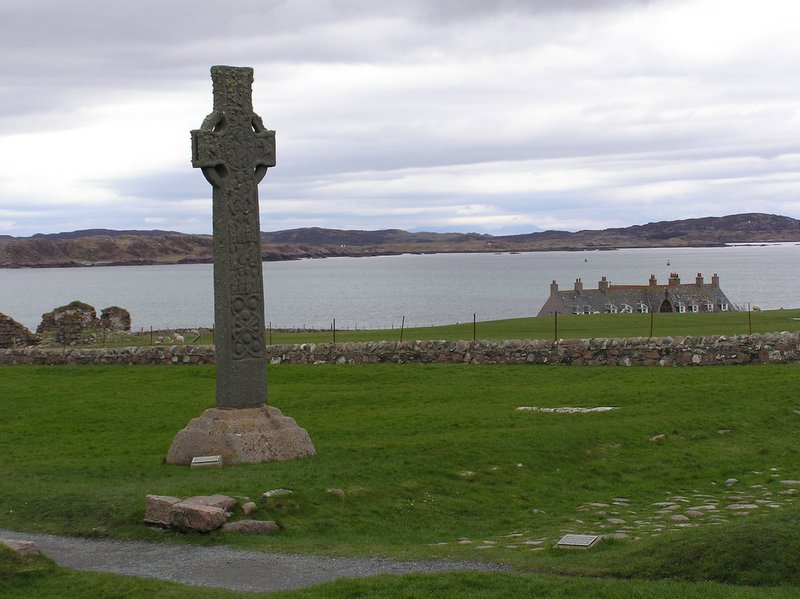
Iona cross with Bishop’s house in distance
Our Celtic retreat is now less than a week away and as you can imagine I am frantically busy purchasing supplies, packing boxes, and finishing off those last minute details. For the last couple of years however, this has been a bitter sweet experience for me as it also marks the anniversary of my mother’s death in 2013. That is the only retreat I have missed. I spent the day at her funeral instead.
While I sat beside my mother in the last week of her life, some of you may remember, I read to her from the book In Search of Sacred Places: Looking for Wisdom on Celtic Holy Islands. As I prepare for this retreat it seemed appropriate to share this again and so I have adapted my post from 2013 for today’s mediation.
My mother loved the story of Iona and Columba often asking me to keep reading even after my voice was hoarse and I wanted to stop.
One reflection from the book really stood out for me.
Everything on Iona has a name. each physical feature of the island has been part of a specific human experience and therefore thought worthy of bearing a name….
These many names are a testimony to the human scale of life on Iona. As the scale of physical size diminishes as one travels to the island-England, Scotland, Mull, Iona-the scale of individuals and spiritual significance increases.Walking is the maximum desirable speed for seeing things fully enough to name them. And when we name things we begin to value them. No wonder we want to be named and known. (37)
To really see and fully enter into the world around us we must walk not run or drive. And when we walk we want to name everything and everyone. We say hello to the people we meet, we look at the flowers and mention them by name, we watch the birds and identify the species. We even like to give our own names to landmarks we pass and houses we enjoy.
What is your response?
Take a walk around your neighbourhood. Notice the people you walk past. Greet those you know by name. Say hello to those you don’t know and ask them their names. Notice the names on buildings, streets, parks. What structures are not named? What names would you give to them? What do these people and these places teach you about God.
To know someone by name we must move slowly enough to take notice of them and walking is indeed the fastest pace for noticing. To give a name, especially an appropriate name that reflects its nature, we must be able to see it fully. To continue appreciating it we need to slow down and notice, not once but regularly. Only in walking or in stillness is this possible.
What is your response?
It is not just the names of people and places we forget. We often also forget the names of God. Sit quietly thinking about the aspects of God’s character that you have encountered in the last year. Name each of them in your mind, say them out loud, savour them on your tongue, then write them down. Remind yourself of what each of those names mean to you. How could you strengthen your memory of who God is and what God means to you?
